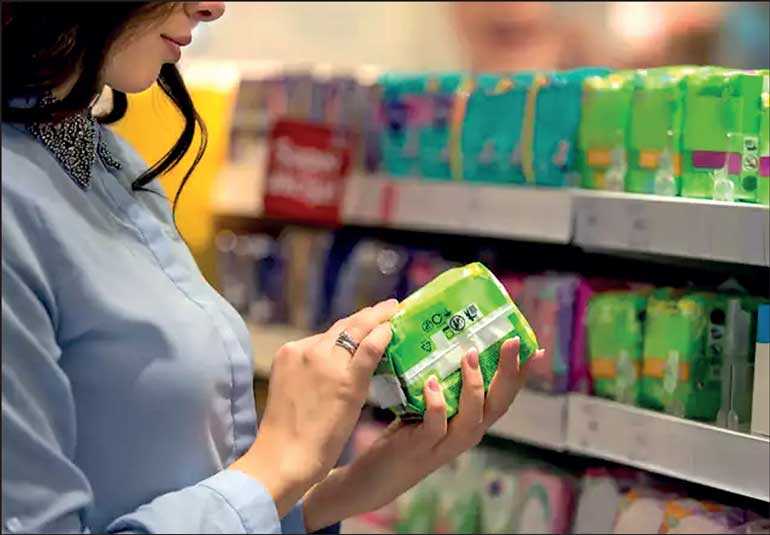Saturday Feb 21, 2026
Saturday Feb 21, 2026
Monday, 30 November 2020 00:00 - - {{hitsCtrl.values.hits}}

By Nisthar Cassim
Sanitary napkins last week came under the spotlight in social media, with the Opposition alleging that the Government has slapped additional taxation, but the industry contends this wasn’t the case.
As part of boosting revenue, the Government, in follow up to the 2021 Budget presented and approved in Parliament last week, revised customs duties and levies.
What was applicable to sanitary napkins as a finished product was the imposition of a 15% CESS, whilst import duty was reduced to 15% from 30%. If one disregards the rationality for this move from tax advisors to the Government, the industry said the twin measures actually had a ‘zero’ effect; hence, there won’t be an increase in prices. This assurance was given by local manufacturers during a meeting summoned by Trade Minister Bandula Gunawardana last week as well. What is more bizarre about the hue and cry in social media as well as from the Opposition ranks in Parliament was over an industry which locally produces almost the entirety of the country’s demand for sanitary napkins.
The multi-billion rupee industry is dominated by local pioneer ICL Brands Ltd., (Eva), accounting for over 80% of the market share as per LMRB, with 33 years of local manufacturing excellence. Hemas Holdings and Raigam Group are the other leading local manufacturers. Imported products and brands are less than 3% of the usage. Leading local brands are not only on par in terms of quality with international brands, but are also offered at 50% less against imported brands.
Industry estimates suggests a monthly demand/use of 30 million pads, and the market has been growing around 9% per annum volume-wise.
Local manufacturers said that if the Government is keen to support the domestic industry, then removal or reduction of duties and taxes on imported raw material should be considered. Applicable taxes are 15% customs duty, 10% Port and Airport Levy (PAL) and 15% CESS on relevant HS Codes.
“If these taxes are removed on imported inputs, then the cost per pack can be reduced by nearly Rs. 5,” industry sources said. At retail, a pack of 10 napkins averages from Rs. 85 to Rs. 130 (local) with various offerings, versus a high of Rs. 260 (imported). Sources also emphasised that a sizable CESS should be imposed by the Government on imported finished goods to support the domestic industries.
It was pointed out that some traders import sanitary napkins from India and China and release them to the market under various brand names and packaging without consideration to hygienic issues for users.
In terms of the market penetration of sanitary napkins in Sri Lanka, it is over 30% per month and 60% per annum. The variation is due to a lack of awareness, myths that a clothing alternative is better, economic reasons and demographics. However, Sri Lanka’s annual penetration is considered to be satisfactory, as it is equal to some of the developed markets, and higher in comparison to India and Bangladesh, where it is 20% and 17% respectively.
Samagi Jana Balawegaya (SJB) Parliamentarian Rohini Kavirathna last week told the media that nearly 50-60% of girls do not attend school during their menses as they do not have affordable access to sanitary napkins. She also pointed out that only 32% of women use sanitary wear in Sri Lanka, with others who are economically challenged, resorting to less hygienic practices.